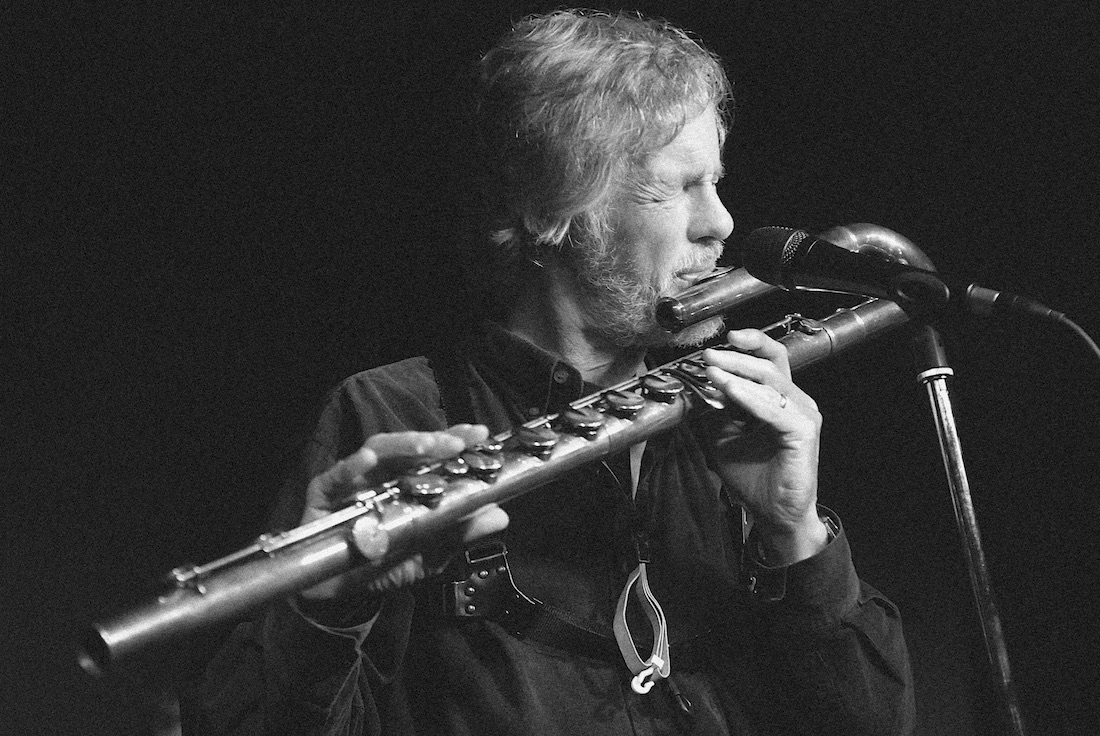Jazz Report calls Glen Hall “Canada’s best kept secret.” A multi-instrumentalist, improviser, composer, arranger and producer, Hall combines emotion, intelligence and sensuality in his internationally acclaimed recordings and his compelling live performances. His musical goal: to go where there is no map.
Hall is an uncompromising artist whose sonic adventures have been joined by such luminaries as arranger-composer Gil Evans, percussion virtuosos Nexus and Trichy Sankaran, trombonist Roswell Rudd, pianist JoAnne Brackeen and a host of others. While critics have found in his music echoes as diverse as Charles Mingus, Frank Zappa, Karlheinz Stockhausen, Ornette Coleman, Brian Eno and Carla Bley, Hall’s music bears the unique and unmistakable stamp of a singular individual. The Globe and Mail says he is “aggressively contemporary. Hall has all the marks of an original mind.”
Glen Hall (b. 7 August, 1950 Winnipeg, Manitoba, Canada) cultivates a dynamic career born of a unique skill-set. Having begun in music as a rock guitarist, he had a musical epiphany hearing the jazz of saxophonist Sonny Rollins and the electroacoustic music of Edgar Varese. On track to become a professor of literature, while writing his thesis on the cut-up technique of William S. Burroughs, he sat in with musicians of Duke Ellington’s band, who told him his musical talent should not be wasted. He abandoned academia to study at the Berklee College of Music, studied composition with György Ligeti and Mauricio Kagel and made a career in music. Later on, with the birth of his daughters, he returned to the academic world as is a college professor of communications and modern mystical literature, all the while maintaining his musical output with compositions, recordings and live performances. Since he organized the first one in 2001, Hall has been the creative director of the 416 Toronto Creative Improvisers Festival.
Perhaps most significant is Hall’s consistent drive towards the cutting-edge of his art, embracing collaborations with artists from a variety of disciplines. He mixes free jazz, free improvisation with live electroacoustics in his compositions and live performances. He is a master woodwind instrumentalist who is also an adept guitarist, percussionist and synthesist. He has incorporated tapes, electronics, synthesizers, and other technology into his performances, compositions and improvisations as far back as 1973.
His current focus lies in the use of computers, specialized software and artificial intelligence, combined with his woodwinds, in a process of bringing together disparate sounds, timbres and textures, both in composition and real-time performance.
He has done artistic residencies at STEIM (Amsterdam), Electronic Music Foundation (New York), Concordia University’s Matralab (Montreal), explored insect communication at the University of Missouri’s Reginald Cocroft Lab (Columbia, Missouri) and presented his work at the Kyma International Sound Symposium and IRCAM (Paris) and has been the recipient of a number of Canada Council for the Arts and Ontario Arts Council grants, as well as a Chalmers Arts Fellowship
After a 40-year career at the vanguard of his art, when many of his contemporaries have found their signature genre, sound, or process, Glen Hall remains a work-in-progress and a courageous creative visionary.



